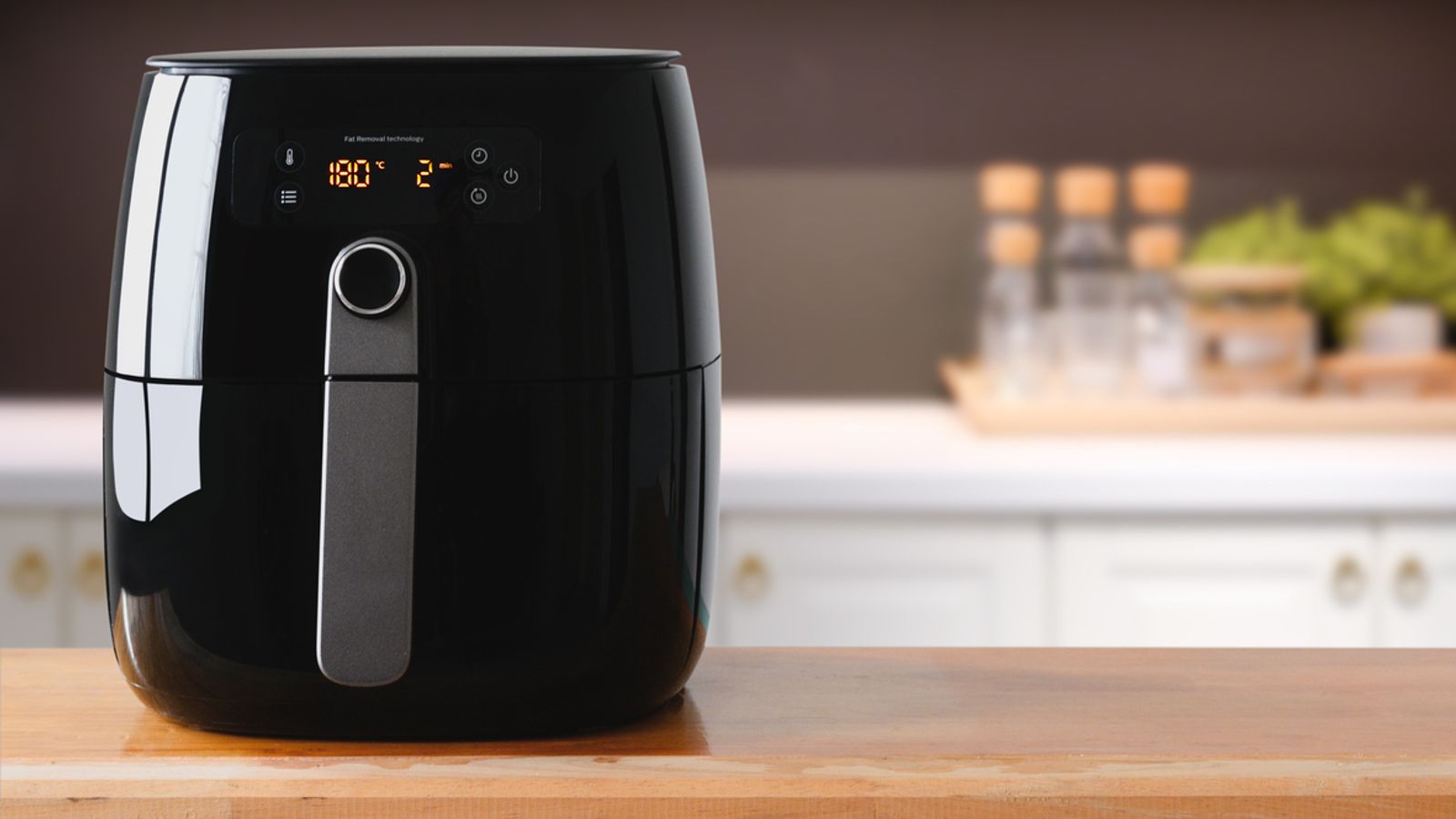The Rise of Air Fryers in UK Kitchens: A Culinary Revolution
In recent years, air fryers have surged in popularity, becoming the third most-used kitchen appliance in the UK, trailing only to toasters and microwave ovens. According to the latest Good Food Nation study, this shift in consumer behavior is largely attributed to the rising cost of living and the energy-saving benefits that air fryers offer. As households look for ways to cut costs while still enjoying delicious meals, air fryers have emerged as a practical solution.
Air Fryers: The New Kitchen Staple
The Good Food Nation survey, which polled 2,003 adults, revealed that 58% of respondents now use an air fryer, a significant increase from 46% just a year prior. This growing trend indicates a shift in cooking habits, with air fryers now being utilized more frequently than traditional electric or gas ovens. In fact, the survey found that 33% of participants have completely abandoned their conventional ovens in favor of this innovative appliance.
While air fryer manufacturers often tout their products as capable of making perfect toast, the classic toaster remains a favorite among consumers, with 77% of those surveyed still using it regularly. The microwave follows closely behind, with 75% of respondents incorporating it into their cooking routines. This data highlights the enduring appeal of traditional appliances, even as new technologies gain traction.
Dietary Trends: Meat Consumption and Sustainable Choices
The survey also shed light on current dietary habits among UK residents. On average, consumers reported eating meat four days a week, with 19% admitting to consuming meat daily. Interestingly, Millennials (ages 27 to 42) were found to be the most likely demographic to eat meat every day, with 26% of them indulging in it regularly. In contrast, Gen Z (ages 16 to 26) followed closely behind at 24%.
However, these younger generations are also leading the charge towards more sustainable eating habits. The survey revealed that 27% of Gen Z and 17% of Millennials are currently following vegetarian, pescetarian, or vegan diets. This contrasts sharply with Baby Boomers, where only 8% reported similar dietary choices, and just 5% of those aged 78 or over.
Understanding Carbon Footprints and Sustainable Eating
Despite the growing interest in sustainable eating, the survey uncovered a concerning gap in knowledge regarding carbon footprints. A staggering 60% of respondents admitted they do not understand what a carbon footprint is, while 25% expressed a willingness to change their diets if they had a better understanding of its environmental impact. This highlights an opportunity for education and awareness around sustainable food choices.
Lily Barclay, content director for Good Food, emphasized the importance of understanding sustainable cooking practices. She stated, "People across the UK who took part in our survey were clear that they wanted to understand more about how to cook and eat sustainably, and that this understanding would help to bring about changes in behavior." The findings suggest that as consumers become more informed, they may be more inclined to adopt sustainable practices in their kitchens.
Barriers to Sustainable Eating
The study also identified several barriers that prevent consumers from embracing sustainable eating habits. Approximately 32% of respondents cited cost as a significant obstacle, while 24% indicated they would be more likely to purchase products with sustainable packaging. Additionally, 23% of participants expressed that it was important for their food choices to align with sustainability principles. Encouragingly, over a quarter (26%) of those surveyed reported that they do not throw away any food during a typical week, indicating a growing awareness of food waste.
Conclusion: A Culinary Shift Towards Sustainability
The rise of air fryers in UK kitchens is more than just a trend; it reflects a broader shift towards energy efficiency and sustainable cooking practices. As consumers navigate the challenges of the cost-of-living crisis, air fryers offer a practical solution that aligns with their desire for convenience and affordability.
Moreover, the survey results highlight a growing interest in sustainable eating, particularly among younger generations. As awareness of dietary impacts on the environment increases, it is likely that more consumers will seek to make informed choices about their food. The combination of innovative appliances like air fryers and a commitment to sustainability may very well shape the future of cooking in the UK, making it an exciting time for both home chefs and the planet.
